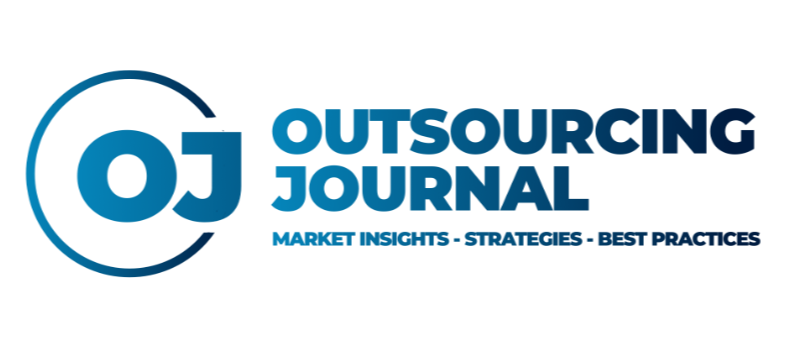Morocco or correctly the Kingdom of Morocco is situated in the Maghreb region in North-Africa on the AtlanDc coast, crossing the Strait of Gibraltar to the Mediterranean coast. Morocco has weighty influence in Africa and the Arabic countries, and is considered a regional power. Its capital is the city of Rabat and the largest city is Casablanca.
Morocco represents its regional and international interests with diverse influence as a member of the United Nations, the African Union (AU), the Arab League, the Arab Maghreb Union (UMA), the Organisation of Islamic Cooperation (OIC), the Non-Aligned Movement and the Community of Sahel–Saharan States (CEN_SAD). (Vvtv)
Morocco’s ICT Sector
The ICT and BPO sector Morocco’s outsourcing sector accounts today for about 1,5% of the global outsourcing market. On December 21st 2020, Mimoun Chikhi, president of the offshoring division of the Federation of Information Technology, Telecommunications and Offshoring (APEBI) gave a few indicators of the offshoring sector in Morocco (Medias24.com). After Chikhi, about 1,000 companies employ around 120,000 people in Morocco in the offshoring sector. He also pointed out the growth between 2016 and 2019, manifested in a 30% plus in employment and 59% in export revenue to 14 billion Dirhams (1,3 billion Euro). He adds that the 81% of the companies and jobs in offshoring are in the Casablanca-Rabat axis, compared with 11% for the Fez-Meknes region, 4% for the Tangier-Tetouan region, 2% for the Souss-Massa region and 1% for the Oriental region. The importance of the sector can be visualized by looking at the Fez-Meknes region, which is home to 36 call centres, employing 4,500 employees in Fez alone and is with that the leading employer in the region (Yassine Tazi, Director General of the Regional Investment Centre CRI, viaMedias24.com).
Amine Zarouk, president of APEBI points to the associations’ objectives in 2020, where digitization plays an important role. He says that with the acceleration of digitization “Morocco is no longer just a consumer of new technologies, but also a producer”. He further elaborates that training and the creation of a national observatory would greatly contribute to this goal. Finally, the development of a brand Moroccan Tech for Africa should put Morocco on a forerunner position for cross-border collaborations, but also to support growth of the Moroccan tech sector (medias24.com, December 2020).
Among the leading companies offering outsourced IT or BPO services, operate outsourcing delivery or shared services centres are CapGemini, CGI, BNP Paribas, AXA, IBM, Accenture, DELL, Amazon, Ubisoft, Webhelp, ATOS, Steria, GFI IT, Altren and SQLI.
ICT exports
United Nations Conference on Trade and Development reported Morocco’s ICT export in 2019 with 711,915 USD which means a plus of 15% against 2018 and 6% minus against the 2006 export numbers (via CEIC Data, London).
Office space and infrastructure
When it comes to office space, there are two main operators of relevant office spaces in Morocco – Technopark with office buildings in Rabat and Casablanca and MedzSourcing operating office buildings in Casablanca, Rabat, Fez and Oujda city.
Casanearshore Park (opened 2007) in Casablanca, 53 ha, housing 26,000 employees in 70 companies
Technopolis Park (opened 2008) in Rabat, 107 ha, housing 30,000 employees in 76 companies
Fes Shore Park in Fes, 22 ha, housing 15,000 employees
Oujda Shore Park in Oujda City, 22 ha, housing 2,000 employees
Technopark in Casablanca, Rabat, and in Tangier, housing 280 companies, 2,000 employees.

Covid-19 pandemic response
Karim Bernoussi, CEO of the Intelcia Group said in an interview with Medias24.com that even though the loss in revenue, specifically from the French market is expected the company is to maintain wages for employees and their employments via re-assignments to different projects. In April 85% of Intelcia’s employees were moved to a WFH model, which means about 4,000 employees of the company in Morocco are currently working from home, said Nadia Ben Bahtane, Intelcia’s marketing and communications director in the same interview.
In summer 2020, the Kingdom announced a recovery plan, to be developed by the government with the following objectives:
• Health coverage for all Moroccans within a 5-year timeframe.
• The expansion of social welfare to vulnerable segments of the population.
• The reform of state-owned enterprises
• Setting up of a strategic investment fund worth US$4.8 billion to help enterprises and individuals recover from the impact of the coronavirus. (https://www.worldbank. org/en/country/morocco)
Digital strategy
As of October 2021 Morocco has a Ministry dedicated for digitalization: Ministry of Digital Transition and Administrative Reform (Ministère de la Transition Numérique et de la Réforme de l’Administration) – mmsp.gov.ma
The government has realized the necessity for digital transformation as well as the level of urgency to carry out respective initiatives. As other emerging economies the Ministry has invested in establishing guidelines for the development of the digital business sector, including the digital transformation of public services.

You can read the full article in the Outsourcing Destination Guide Morocco, which is available for free download at www.outsourcing-destinations.org
The author: Stephan Fricke is CEO of the independent Deutscher Outsourcing Verband (German Outsourcing Association) and of the German Process Automation Association. In this function, he works with leading organizations from buyer, provider, and consulting side and also with industry associations and government organizations, concentrating on improving market conditions for IT-services, BPO and global business services as well as for business process automation. He is a regular speaker and author on markets, their states and actors as well as the impact on economies. He is also Editor in Chief for the Outsourcing Journal focusing on shared knowledge from industry experts from Germany, Europe and other countries. He is advising companies on their strategies and activities on the German market, as well as economic support organizations on development and growth of local ICT sectors. You can connect with Stephan via LinkedIn.com.

